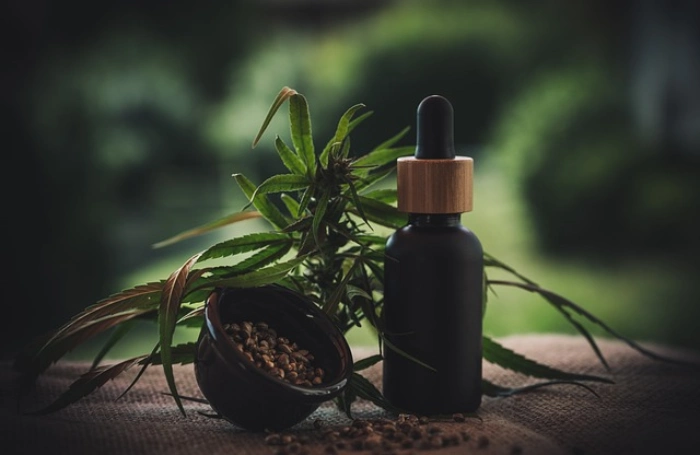Cannabidiol affects the chemicals in the brain, giving us its enjoyable effects. The actions of CBD on receptors bring out many results. You can use CBD oil to treat a lot of conditions. But can you use it to manage anosmia?
Table of Contents
What is Anosmia?
Anosmia is the loss of sense of smell. The loss can be complete or partial. Common causes of anosmia include nose blockage, tobacco smoking, and injury in the nose lining. More severe conditions can cause anosmia, such as damage to brain parts that deal with a sense of smell or damage to the olfactory nerve. Injuries to the head mainly cause the damage.
In recent times, the coronavirus has infected many people globally. One of the symptoms of this infection is the loss of the ability to smell or taste. This virus can make the supporting cells in the olfactory epithelium lose function leading to anosmia.
THC can also cause temporary anosmia. Consuming THC by smoking can increase your sense of smell, while edibles and capsules can block the olfactory bulb in the brain and reduce the sense of smell for a day or two. It can also make it challenging to differentiate between two odors. THC was found to alter the perception and evaluation of the sense of smell.
Another cause for anosmia is cancer and radiation treatment for cancers such as neck and head cancer. Small non-cancerous growth called polyps can also block the nose resulting in loss of sense of smell. Anosmia dramatically reduces the quality of life. Loss of sense of smell is mainly accompanied by loss of sense of taste. It leads to decreased enjoyment of food and reduces appetite leading to weight loss. Sense of smell is also crucial in survival. It alerts you to danger signals such as fires, spoiled food, and gas leaks.

CBD Oil and Anosmia
Effects of CBD Oil
Cannabidiol oil is an extract of cannabis flower or the hemp plant. CBD has many benefits on the human body, including reducing inflammation, easing general body discomfort and stress, promoting relaxation, and reducing seizures. Moreover, CBD is not entirely psychoactive and won’t make you high.
CBD binds to the receptors of the endocannabinoid system that are located throughout the body. They activate several different receptor pathways to give therapeutic benefits to the human body. Buy your CBD oil from NuLeaf Naturals and enjoy the many medicinal benefits of CBD.
Furthermore, if you want to embark on a natural healing journey, Green Health Docs can help you obtain a medical marijuana card if you live in states where medical marijuana is legal, like Alabama, for example.

How CBD Works for Anosmia: The Endocannabinoid System
The endocannabinoid system regulates the body functions such as the immune system, appetite, sleep, and pain. CBD can affect the endocannabinoid receptor activity, reducing inflammation and interacting with neurotransmitters.
As you breathe in a scent, the smell’s molecules activate olfactory receptor cells in the nasal cavity, sending indicators to the main olfactory bulb in the brain. The olfactory bulb processes the smell molecules sent from the nose. It receives input from brain structures that are higher up in the order. In this way, the main olfactory bulb recognizes an odor, whether it is pleasant or unpleasant.
When the cannabinoid receptors in the main olfactory bulb are activated, there can be increased output neurons and mitral cells’ response. The ability to detect and perceive smells without noticing every specific scent can be an adaptive advantage to human beings.
When cannabinoid receptors get active in the main olfactory bulb, they function to increase the sensitivity of output neurons. In research, CB1 caused fasted mice to increase their feeding behavior through improved food detection through the olfactory mechanism. Endocannabinoids in the olfactory system regulates feeding.
How CBD Oil Helps With Anosmia
CBD oil can clear blocked sinuses. Inhaling its vapor or rubbing a cream under your nose can help clear blocked sinuses, improving the sense of smell. You could also rub some oil inside the nostrils to unblock them. CBD fights off infections, even those that have become resistant to antibiotics. Nasal obstruction caused by sinusitis can therefore be cleared using CBD oil.
CBD oil has been proven to have cytotoxic activity on cancer cells non-cancerous polyps. They induce apoptotic cell death, cell cycle arrest, and distinct gene expression. This can significantly reduce anosmia caused by cancer. The non-cancerous polyp growth also shrinks away, unblocking the nose leading to an improved sense of smell.
One of the therapeutic effects of CBD oil is that it can counteract the undesirable effects of THC, including the loss of sense of smell. Furthermore, CBD can block the ability of THC to overstimulate the ERK pathway in the hippocampus, therefore, preventing its harmful effects.

Is CBD Oil Legal?
CBD oil is extracted from the marijuana or hemp plant. Hemp is federally legal, but marijuana is still considered a Schedule I Controlled Substance. Therefore, CBD oil extracted from the hemp plant is deemed legal, while extracted from marijuana is illegal. Legal CBD should have less than 0.3 percent THC levels.
Some states still have partial or complete CBD restrictions as they view it as no different from marijuana. South Dakota, Idaho, and Iowa states still have stringent laws against CBD no matter the source. Other conditions permit the production, sale, and consumption of hemp.
Final Thoughts
CBD oil may improve the quality of life of people with anosmia. It can fight the conditions that cause loss of sense of smell. Ensure that you first consult a doctor before using CBD oil for medicinal purposes, especially under other medications.
